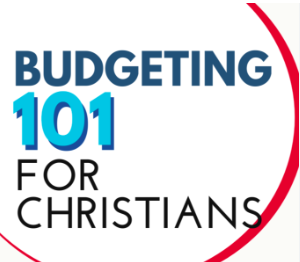Managing finances can often feel overwhelming, but integrating Christian principles into budgeting can provide a sense of peace and direction. “Christian Budgeting Tips: Managing Finances God’s Way” explores how biblical teachings can guide financial decisions, emphasizing stewardship, generosity, and faith. By focusing on these principles, Christians can develop a financial plan that aligns with their values and honors God. This guide offers practical tips to help you manage your money wisely, avoid debt, and give generously, all while trusting in God’s provision. Whether you’re looking to save more, spend less, or give back to your community, these tips can help you navigate your financial journey with faith and wisdom.
20 Christian Budgeting Tips: Managing Finances God’s Way
- Pray for Guidance: Begin every financial decision with prayer, seeking God’s wisdom and direction. Trust that He will guide you to make choices that honor Him.
- Set Financial Goals: Establish short-term and long-term financial goals that reflect your values and align with biblical teachings, such as saving for future needs, paying off debt, and giving generously.
- Create a Budget: Develop a budget to track your income and expenses. This helps you manage your money effectively, ensuring you spend within your means and prioritize essential needs.
- Tithe Regularly: Commit to giving 10% of your income to your church. Tithing is an act of worship and obedience, recognizing God as the provider of all your resources.
- Save Diligently: Establish a savings plan to prepare for future needs and emergencies. Proverbs 21:20 highlights the wisdom of storing up resources.
- Avoid Debt: Strive to live within your means and avoid unnecessary debt. Proverbs 22:7 warns that the borrower is a slave to the lender, emphasizing the importance of financial freedom.
- Spend Wisely: Make thoughtful spending decisions, prioritizing needs over wants. Consider how each purchase aligns with your values and long-term goals.
- Give Generously: Support charitable causes and help those in need. Giving reflects God’s generosity and can transform lives, both yours and those you help.
- Invest Prudently: Make wise investment choices that honor God and reflect good stewardship. Seek advice from knowledgeable and trustworthy sources.
- Teach Financial Responsibility: Educate your family about biblical principles of money management. Instill values of generosity, saving, and responsible spending in your children.
- Live Modestly: Embrace a lifestyle of contentment and simplicity, avoiding the trap of materialism. Philippians 4:11-12 teaches the value of being content in all circumstances.
- Plan for Emergencies: Set aside an emergency fund to cover unexpected expenses. This prepares you for unforeseen events without resorting to debt.
- Seek Counsel: Consult with a Christian financial advisor for expert guidance. Proverbs 15:22 underscores the value of seeking wise counsel.
- Be Honest: Maintain integrity in all financial dealings. Honesty honors God and builds trust in your relationships.
- Trust in God’s Provision: Have faith that God will meet your needs according to His riches and glory. Philippians 4:19 reassures us of God’s provision.
- Review Your Budget Regularly: Periodically review and adjust your budget to ensure it aligns with your financial goals and current circumstances.
- Avoid Impulse Purchases: Resist the urge to make spontaneous purchases. Take time to consider and pray about your spending decisions.
- Reduce Expenses: Look for ways to cut costs and eliminate unnecessary expenses. This helps you save more and live within your means.
- Celebrate Progress: Acknowledge and thank God for financial milestones and achievements. Celebrating progress encourages continued diligence and faithfulness.
- Stay Grateful: Cultivate a heart of gratitude for what you have. Gratitude shifts your focus from what you lack to the abundance of God’s blessings in your life.
5 Bible Verses on Finances
- Proverbs 3:9-10: “Honor the Lord with your wealth, with the firstfruits of all your crops; then your barns will be filled to overflowing, and your vats will brim over with new wine.”
- Philippians 4:19: “And my God will meet all your needs according to the riches of his glory in Christ Jesus.”
- Proverbs 22:7: “The rich rule over the poor, and the borrower is slave to the lender.”
- Luke 6:38: “Give, and it will be given to you. A good measure, pressed down, shaken together and running over, will be poured into your lap. For with the measure you use, it will be measured to you.”
- 1 Timothy 6:10: “For the love of money is a root of all kinds of evil. Some people, eager for money, have wandered from the faith and pierced themselves with many griefs.”
Conclusion
Christian budgeting is not merely about managing money; it’s about aligning financial practices with spiritual values. “Christian Budgeting Tips: Managing Finances God’s Way” provides a framework for integrating faith into every financial decision, fostering a lifestyle of stewardship, generosity, and trust in God’s provision. By following these tips and reflecting on biblical wisdom, you can create a budget that honors God, supports your needs, and blesses others. Remember, true financial peace comes not from the amount of money you have but from trusting in God’s faithful provision and using your resources to fulfill His purposes. Embrace these principles and experience the joy and freedom of managing finances God’s way.
